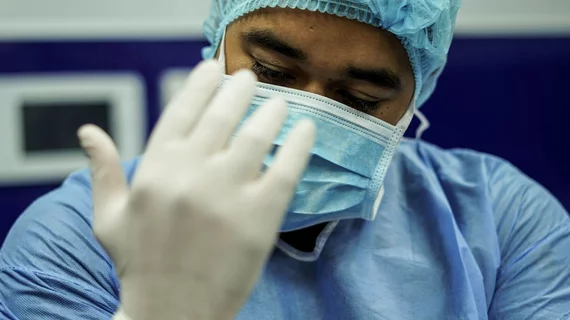COVID crisis in Nebraska: ‘We’re watching a system breaking in front of us and we’re helpless to stop it’
The hospital many consider the best prepared in the U.S. to handle a pandemic prior to the COVID crisis now finds itself “on an absolutely catastrophic path.”
Those are the words of Angela Hewlett, MD, MS, an infectious-disease specialist who directs the COVID-19 team at the University of Nebraska Medical Center in Omaha.
UNMC is at heightened readiness for disease-based disaster care because it’s been investing in the art and science since 2003, when SARS broke out.
The Atlantic reports that UNMC has converted an entire building into a COVID-19 tower. It’s got one unit dedicated to COVID on each of 10 floors. Three of the units are ICUs and one is for hospice care.
“We’ve never had to do anything like this,” Hewlett tells the magazine.
“Presently about 2,400 Nebraskans are testing positive for COVID-19 every day—a rate five times higher than in the spring,” reporter Ed Yong writes. “More than 20% of tests are coming back positive, and up to 70% in some rural counties—signs that many infections aren’t being detected.”
Meanwhile the count of patients hospitalized with the virus in the Cornhusker State has tripled over the past six weeks.
For its part, 718-bed UNMC has more inpatients under its roof than ever before.
“We’re watching a system breaking in front of us and we’re helpless to stop it,” Kelly Cawcutt, MD, MS, an infectious-disease and critical-care physician, tells Yong.

